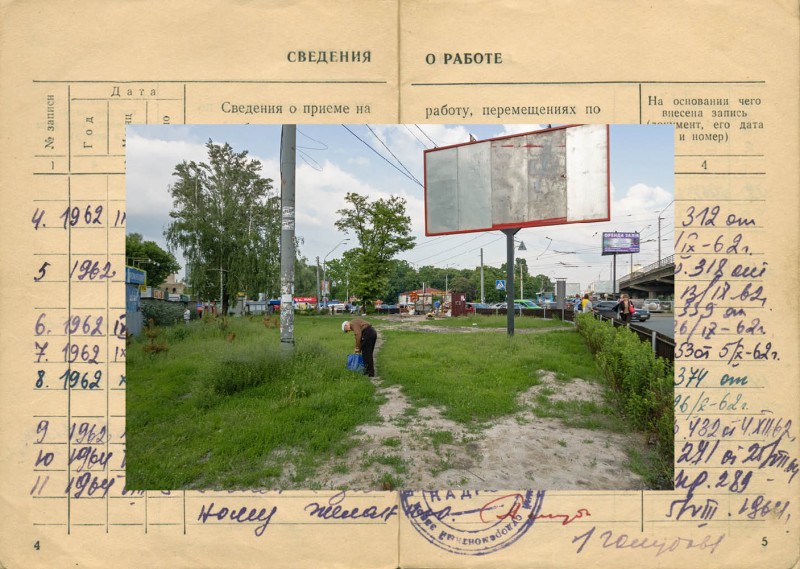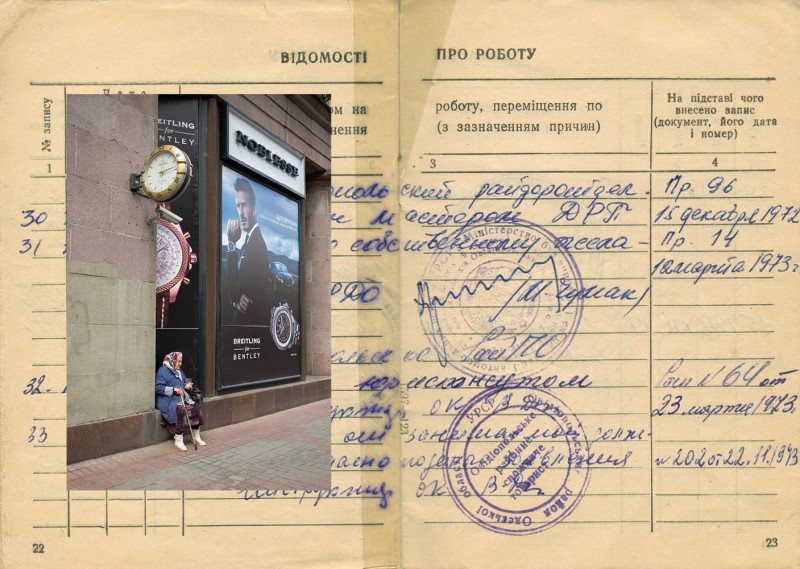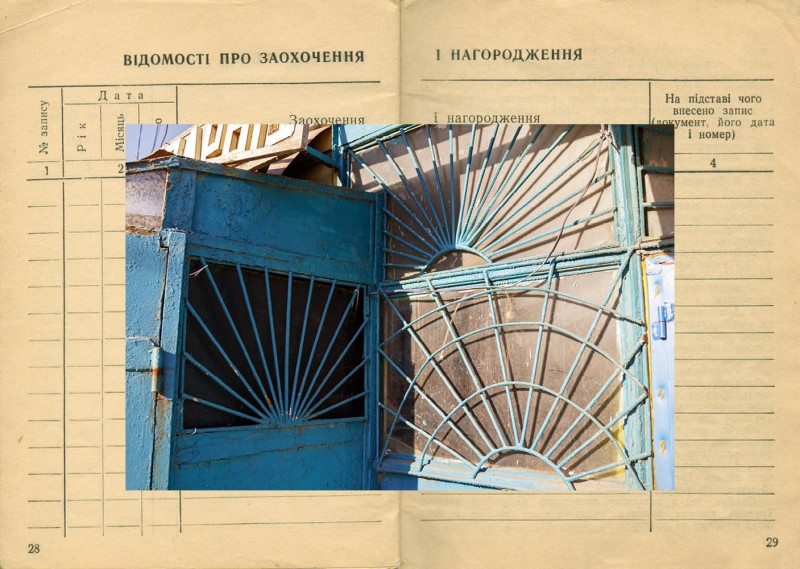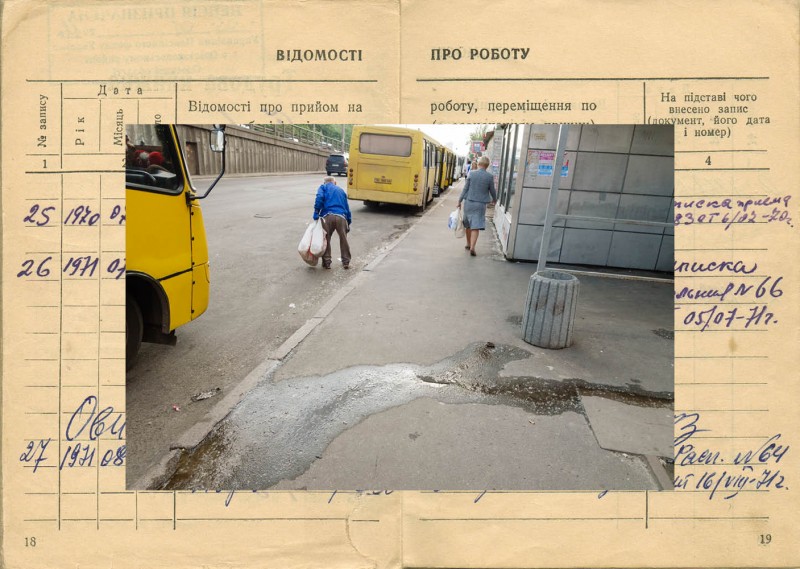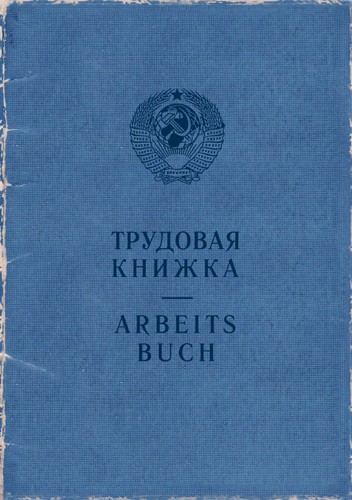With his newest book, Arbeitsbuch (Labour book), the photographer Kirill Golovchenko, who was born in Odessa in 1974, has published a collage where he mixes his impressions of the hard, daily life of seniors in the Ukraine, with original Soviet Union worker documents. The small, handy book, more like a 32 page brochure, is first being printed in an edition of 500 copies and is visually defined by the haptics of the different materials. Rather than printing his photos on a neutral background, Golovchenko has experimented by embedding them in copies of pages from historic worker books – in this case, his father’s. At times, the pages reveal hand-written entries, making them authentic historic records that correspond to Golovchenko’s contemporary impressions. The cover is embossed, printed on matt, uncoated paper, so that when the book is picked up it conveys a feeling of real authenticity. Golovchenko designed the book himself and used his own publishing company, Salo Books, to produce it. The outcome is a small, refined and very conceptual project. “Seventeen colour pictures is more than enough to understand what it’s all about,” Golovchenko says. “It doesn’t always have to be a mammoth project.”
With his pictures, Golovchenko offers insight into the life and working world of his homeland today. Arbeitsbuch documents the fate of hard-working people at the end of their time of gainful employment who, despite all their efforts, have been unable to get together any wealth. Their existence has been defined by their worker caste. Golovchenko photographed the series in the spring and summer of 2014, mostly in Odessa and Kiev. The images appear frozen, and simply looking at them is often not enough to place them.
The title of the book refers to the expression normally used to describe the booklet of worker protocols and certificates of conduct, given to each employee in the USSR as of 1939. These workbooks still exist in Russia and the Ukraine. They are suppose to document all the stages of a worker during his or her working life, and serve to establish pension rates.
“Pensions are very low in the Ukraine, and represent less that 55.- euros a month. This means that many pensioners struggle to survive day by day. Many of them are forced to continue to work to get by. Because pensions are insufficient, the whole purpose of the workbooks seems pointless. Workers were cheated by the State,” Golovchenko says, referring to the situation of many seniors – the ones who worked hard but could not acquire any wealth. Various waves of inflation have also rolled over the country.
Traditionally speaking, a workbook has a blue cover, and entries are mostly made in blue ink: the colour is also specific to working clothes, as much today as in the past. The colour blue appears in every one of Golovchenko’s pictures, reminiscent of the workbook and a stylistic common thread running through the cycle; timeless snapshots of the life of Ukrainian pensioners, who can not actually retire.
Carla Susanne Erdmann
© Salo books, 2015
Size: 102 x 145 mm
Weight: 35 Gramm
Brochure, 32 pages
17 colour photographs
Edition 500 pieces / signed, numbered
Language: German, Russian
EUR 12.00
Available at the
LFI Shop